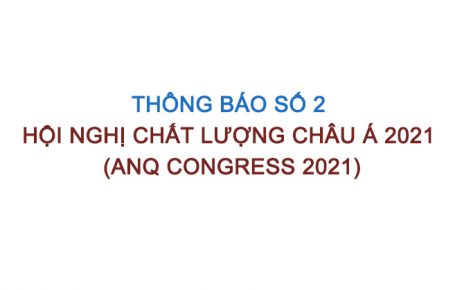Celebrating IAQ’s Golden Anniversary
by Gregory H. Watson
International collaboration has been a hallmark of the modern global quality movement since it
evolved after World War II:
ASQ was founded in 1946 to preserve the lessons learned when integrating quality
methods into the mass production systems required to support the global efforts of the
Allies.
The Union of Japanese Scientists and Engineers (JUSE) was established in 1946 to
integrate quality into the reconstruction of Japan.
The European Organization for Quality (EOQ) was established in 1956 to disseminate
quality lessons that were an adjunct to the Marshall Plan for rebuilding Europe.
Two decades into postwar reconstruction efforts, a growing awareness of the need for
more formal international coordination and collaboration among these organizations emerged.
The initial idea of forming an international association originated from the President of the
European Organization for Quality (EOQ), Jan van Ettinger.
His idea was assimilated by ASQ Past-Presidents Armand V. Feigenbaum and E. Jack
Lancaster. In his ASQ presidential acceptance speech, Lancaster sparked general interest within
the society’s leadership in developing such an organization as a global quality alliance, and he
coordinated meeting the leaders of these three organizations to determine the feasibility of
founding such a quality group.
Subsequently, in 1966, a six-person board was established to form what was first called
the International Quality Association (now the International Academy for Quality, IAQ), whose
invited membership would equally represent all of the three major quality organizations. The
board’s purpose was to design and develop a new global organization to facilitate an
international exchange of information about quality to promote quality throughout all nations.
JUSE, EOQ and ASQ each nominated two individuals to form this study team, and the
target was to complete the formal organization 1971. JUSE nominated Kaoru Ishikawa and
Masao Kogure (who was later replaced by Tetsuichi Asaka). Two board members of EOQ were
named to the new organization’s board: Frank Nixon (from the United Kingdom, also supported
by the British Productivity Council) and George Borel (France). From ASQ, the participants
were Armand Feigenbaum and Jack Lancaster.
The original purpose of this group was threefold:
1. Coordinate attention to technical problems in quality.
2. Ensure the broad dissemination of results of such work to the greatest benefit of those
concerned.
3. Promote recognition of the role and importance of quality in other disciplines as a
concept and as a decisive factor in stimulating success in all disciplines.
Another force behind IAQ’s establishment was Walter E. Masing, who stayed in the
background because he was in high demand as the principal originator of the Deutsche
Gesellshaft für Qualität, (German Quality Association, DGQ) and the EOQ. Because of their
important contributions and early roles in the founding of IAQ, Feigenbaum, Ishikawa and
Masing are honored by IAQ with a Founders Medal, an award that recognizes a member’s
exceptional service to the academy.
The first Americans initially elected as IAQ Academicians were Leon Bass, Charles A.
Bicking, C. Eugene Fisher, Julius Y. McClure and Thomas C. McDermott, in addition to
Armand Feigenbaum and Jack Lancaster. All had served previously as ASQ Presidents.
Lancaster was elected the first IAQ president and was succeeded by Feigenbaum and Ishikawa
for the following two three-year terms.
Since its founding, about 250 individuals have been elected as Academicians, and their
membership has been equally distributed across the Americas, Europe and Asia and represents
more than 60 nations.
In addition, the symbiotic relationship between IAQ and ASQ is observed in the fact that
academicians have included 28% of the ASQ Past-Presidents, 46% of its Distinguished Service
Medalists and 42% of its Honorary Members.
Perhaps even more noteworthy is that of the recipients of the ASQ Lancaster Medal –
which recognizes international service and has a strong correlation to the criteria for election as
an Academician – 5% have been IAQ Members.
Today, ASQ hosts the IAQ secretariat and provides its administrative support through a
contractual arrangement.
IAQ Members were instrumental in founding all of the leading global professional
quality organizations: JUSE, EOQ, Asia Pacific Quality Organization, Asian Network for
Quality and Middle East Quality Association. They played an important role in founding more
than 24 national quality organizations, and the academy continues outreach to promote quality in
developing nations.
In 1983, a team of academicians – with guidance and translation support of its first
Chinese member, Yuanzhang Liu – made a quality tour of Chinese cities and introduced
government and business leaders of mainland China to the concept of Total Quality
Management.
IAQ’s current activities are supervised by its Indian Chairman, Janak Mehta, and its
Hungarian President, Pal Molnar. These activities include the operation of several Think Tanks
investigating various aspects of quality methods and supporting the program of quality
advancement through a variety of global, regional and national quality initiatives.
Most recently, the International Academy for Quality hosted the World Quality Forum in
Budapest, Hungary, which united participants in the IAQ Think Tanks with quality leaders from
across the globe to consider challenges and issues facing the international quality community.
GREGORY H. WATSON is a Past President of IAQ and ASQ. He has been elected an honorary
member of IAQ and a fellow of ASQ, and has received the IAQ’s Founders Medal, the Deming
Medal from JUSE, the Borel Medal from EOQ and ASQ’s Distinguished Service Medal.
